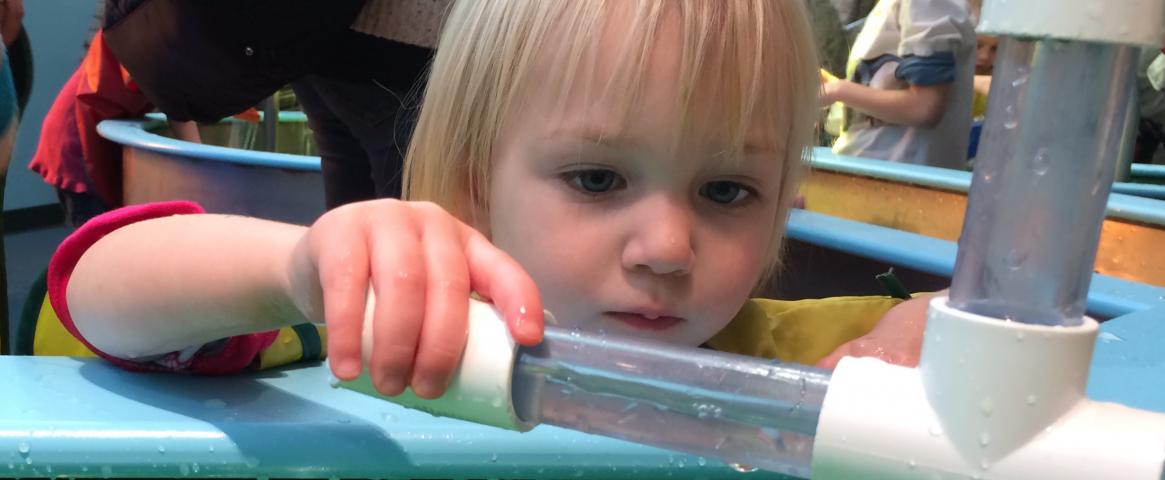By Amanda Mascarelli
About three weeks ago, I stared hard at my wall calendar and thought, "How the hell am I gonna do this?" All three of my kids were going to be out of school for the entire week of Thanksgiving. On the second day back after Thanksgiving, my first-grader and kindergartener had a scheduled half-day — something about professional development for teachers. And due to forces mostly outside of my control, I had a two-part feature, a Q&A edit, this blog post, and loose ends on three other projects, all with deadlines converging over the week and a half after Thanksgiving.
My husband and I shared the Thanksgiving-week kid duty, and at the start of last week, I was on track to meet all of my commitments. Then the stomach bug hit. My 2-year-old woke up vomiting at 4 a.m. Tuesday. I had stayed up past midnight writing. Fortunately, my husband was able to stay home to take care of our daughter while I slept (a little), wrote, and laundered lots of sheets and blankets. Unfazed, I charged ahead. By Wednesday night, the stomach bug had also felled my 6-year-old. The next day, my husband required his own sick day.That's when it became clear that I was not going to be able to file my double feature on time for Friday. Ugh. I loathe asking for extensions. However, I knew that sick days are, by definition, out of our control, and fortunately my editor totally understood.
But even in the absence of sick days, all the 'planned' days off from school require some serious strategizing. When two out of three of my children graduated up into the public school system, I was so overjoyed (day-care rates be damned!) that I was blind to the number of non-school days it would bring. Snow days! Holidays! Teacher planning/professional days! Parent/teacher conference days! Assessment days!
How's a person supposed to get any work done? (Double question mark if you happen to find yourself being The Default Parent.) Parental guilt aside, iPads, The Magic School Bus episodes, and Disney movie replays only go so far. My husband can flex his hours, which means that he has a lot of flexibility to go in early, stay late, or put in a few hours on the weekend to reach his 40 hours. This is a big help when the kids have a day off or an early-release day, or when I need to squeeze in extra time to work. The tradeoff is that he ends up working more 12-hour days and weekends than we'd like. My older kids' school offers a great selection of enrichment classes for half-days, which we've taken advantage of, and there are plenty of day-camp options near us. But when you have three kids, those options get pricey.
At a loss for how to gracefully manage all these planned and unplanned days off and still meet my deadlines, I consulted my camp of fellow parent-writers.
Sick days needn't be a total loss, says Emma Marris. "Sometimes I work in bed with a sick kid tucked in next to me," she says. "I actually love such days. I get work done; I get to spend one-on-one time with one of my kids and the cold or flu knocks their energy level down to something approaching mine, and we can relate at a slower, lazier adult pace. Cozy times."
I love this image, and I hope for a day like this with each of my children before they leave for college. So far, though, all I can picture from our recent bout with the stomach bug is laundry. Loads and loads of laundry.
For planned days off from school, Emily Sohn strategically arranges play dates for her older child. She either sends him to a friend's house for a couple of hours ("preferably during the little one's nap time") or allows him to invite a friend over. "They occupy each other and I can get a few things done."
Kendall Powell has also had good luck with play-date swapping. "I highly recommend the play-date swap for times when you need to be absolutely child-free to get work done on a school holiday," Kendall says. During Thanksgiving week, Kendall got two unexpected fact-checking requests on two features, both in the same day. "I blasted out an email to all my neighbors who might be home with kids also and asked if we could do a play-date swap," Kendall says. "It worked beautifully."
Another option for carving out some child-free time is to hire help. Jennifer Cutraro has a "mother's helper" — the neighbor's 11-year-old daughter — who occasionally comes over for an hour or two to play with her older daughter while her younger daughter naps.
But sometimes, you have to know when to just let it go. On a snow day last year, Jenny had some looming deadlines, so she attempted to work while the kids watched TV. "It worked for about 10 minutes," Jenny says. After starting to get frustrated with the endless interruptions, she decided to give up on work and go play in the snow with the kids. She had to stay up late that night working to make up for it, "but the tradeoff was more than worth it."
As for me, I filed my double feature on Monday morning and (mostly) escaped the stomach bug. But I'm staring at my wall calendar again, and it seems there are a few more holidays coming up.
Amanda Mascarelli is the managing editor of SAPIENS, a digital magazine covering anthropology for a popular audience. Prior to this role, she spent more than a decade as a freelance science journalist. Her work has appeared in Audubon, Nature, Science, New Scientist, the Los Angeles Times, the Washington Post, and elsewhere.
Image credits: K. Latham via Flickr/Creative Commons, James Mascarelli





